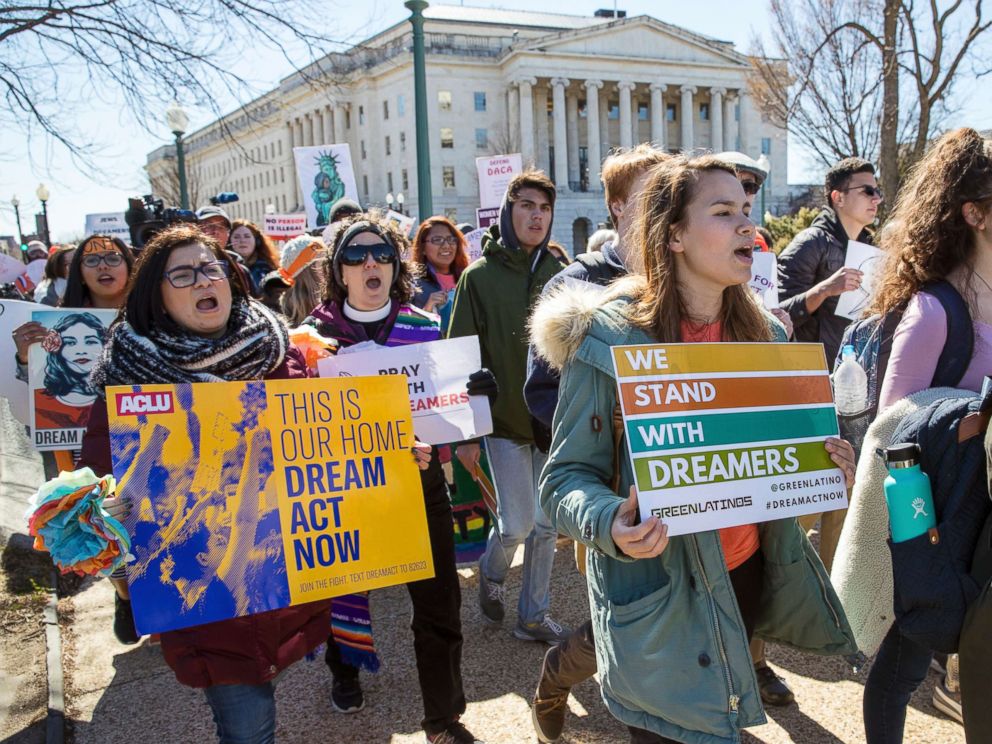Judge rules challenge to Trump's plan to end DACA can go forward
The Trump administration argued there was no evidence of animus.
A federal judge in Brooklyn on Thursday narrowed, but refused to dismiss, a lawsuit that challenges President Trump’s plan to end DACA, finding “a plausible inference” it was illegally aimed at Mexicans.
The decision means plaintiffs can move forward with the suit which claims the president’s plan ran afoul of the Equal Protection Clause of the Fourteenth Amendment which prohibits government officials from discriminating on the basis of race.
“Plaintiffs have alleged sufficient facts to raise a plausible inference that the DACA [Deferred Action for Childhood Arrivals] rescission was substantially motivated by unlawful discriminatory purpose,” Judge Nicholas Garaufis wrote.
The Trump administration argued there was no evidence of animus despite Mr. Trump’s public statements describing Mexicans as “thugs,” “animals” and “bad hombres.”
“Although the use of racial slurs, epithets, or other racially charged language does not violate equal protection per se,” the judge wrote, “it can be evidence that official action was motivated by unlawful discriminatory purposes.”

The administration urged the court to ignore Mr. Trump’s remarks because they were uttered separately from the DACA decision and before he took the oath of office. The judge conceded it is “potentially fraught” to search for evidence of discriminatory motivation on the campaign trail but he rejected the argument.
“The court does not see why it must or should bury its head in the sand when faced with overt expressions of prejudice,” Garaufis wrote. “The court is aware of no authority holding that this rule does not apply simply because the speaker is, or is running to be, the President of the United States.”
Plaintiffs applauded the ruling.
“We’re pleased the court ruled that our substantive Equal Protection and APA [Administrative Procedure Act] claims can proceed, and we look forward to continuing our litigation to protect Dreamers and New York’s businesses, economy, and institutions,” said Amy Spitalnick, spokeswoman for New York Attorney General Eric Schneiderman.




